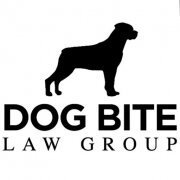Best Commercial Litigation Lawyers in Irvine
Share your needs with us, get contacted by law firms.
Free. Takes 2 min.
List of the best lawyers in Irvine, United States
About Commercial Litigation Law in Irvine, United States
Commercial litigation covers disputes that arise from business relationships and commercial transactions. In Irvine, which is part of Orange County, California, commercial litigation typically involves contract disputes, partnership and shareholder conflicts, business torts, real estate and construction disputes, fraud and misrepresentation claims, trade secret and intellectual property disputes, and disputes over business dissolution or creditor collection. Cases may be handled in state court - generally the Orange County Superior Court - or in federal court when a federal question or diversity of citizenship exists. Many business disputes are also subject to private dispute resolution processes such as arbitration and mediation.
Why You May Need a Lawyer
Commercial litigation frequently involves complex facts, technical legal doctrines, and high-stakes remedies. A lawyer can help in many common situations, including:
- Breach of contract claims where one party alleges the other failed to perform under written or oral agreements.
- Disputes between co-owners, partners, or shareholders over management, distributions, fiduciary duties, or buyouts.
- Claims of fraud, misrepresentation, or deceptive business practices that harm a company or its stakeholders.
- Intellectual property disputes involving trade secrets, copyrights, trademarks, or licensing rights.
- Construction and real estate conflicts over performance, liens, payment, or defects.
- Enforcement or defense of arbitration clauses, and representation before arbitrators.
- Collection and enforcement of judgments - converting a favorable decision into payment through garnishment, liens, or writs of execution.
- Obtaining provisional relief - such as temporary restraining orders, preliminary injunctions, or prejudgment attachments - to protect business interests before a full trial.
Because procedural deadlines, evidence preservation, and court rules can affect outcomes, retaining counsel early often improves the ability to protect rights and negotiate favorable resolutions.
Local Laws Overview
Commercial litigation in Irvine is governed primarily by California law, supplemented by local rules and procedures of the Orange County Superior Court and, where applicable, federal law in the Central District of California. Key aspects to know include:
- Statutes of limitations - Time limits to file suit vary by claim. For example, breach of a written contract is typically governed by a four-year limitation period, breach of an oral contract by two years, personal injury claims by two years, and many fraud-based claims by three years. Exact deadlines depend on the cause of action and facts - verify applicable periods early.
- Discovery rules - California permits broad discovery to obtain relevant information. Typical tools include depositions, interrogatories, requests for production of documents, and requests for admission. Parties must meet and confer to try to resolve disputes before seeking court intervention.
- Alternative dispute resolution - Many commercial contracts include arbitration or mediation clauses. The California Arbitration Act and the Federal Arbitration Act guide enforcement of arbitration agreements. Courts may compel arbitration or stay litigation in favor of ADR.
- Court procedures and local rules - The Orange County Superior Court has local rules and procedures that affect filing, service, motion practice, and calendaring. The court uses case management conferences, tentative rulings on motions in some departments, and may require settlement conferences.
- Remedies and provisional relief - California law provides damages, specific performance in limited circumstances, injunctive relief, and equitable remedies. Courts can grant temporary restraining orders and preliminary injunctions to preserve the status quo, and provide prejudgment remedies such as attachments or lis pendens where statutory prerequisites are met.
- Fee shifting - The default in California is that each party pays its own attorney fees - the American Rule. However, many contracts include attorney-fee provisions that allow prevailing parties to recover fees. Certain statutes also provide for fee awards to a prevailing party.
- Small claims and alternative forums - For lower-value business disputes, California small claims court provides a faster and less formal forum - with dollar limits that generally allow up to $10,000 for individuals and smaller limits for businesses. Complex or high-value commercial disputes usually require superior court or arbitration.
- Federal considerations - If a claim raises a federal statute or involves parties from different states with sufficient monetary amount in controversy, federal jurisdiction may be available. Federal courts follow the Federal Rules of Civil Procedure, which differ in some respects from California state rules.
Frequently Asked Questions
What exactly qualifies as commercial litigation?
Commercial litigation includes lawsuits that arise from business activities - for example, breach of contract between companies, disputes among owners, claims of fraud or unfair competition, and commercial real estate and construction disputes. It excludes most family law, criminal, and personal consumer matters unrelated to business operations.
How do I know if I should file a lawsuit or pursue alternative dispute resolution?
Consider the strengths of your legal claims, potential remedies, costs, time, privacy, and business relationships. ADR methods like mediation and arbitration can be quicker and more confidential. A lawsuit may be necessary when you need formal discovery, injunctive relief, or a public record. An experienced attorney can evaluate options and recommend the most strategic path.
What are the typical stages of a commercial litigation case?
Common stages include pre-suit investigation and demand, filing the complaint, service of process, the defendant's response, discovery, motions (including dispositive motions), settlement negotiations or ADR, trial, and potentially appeal. Timing varies widely - from months for simple matters to years for complex cases.
How long do I have to file a commercial lawsuit?
Statutes of limitations vary by claim. As a general guide, written-contract claims often have a four-year limit, oral contracts two years, many tort claims two years, and fraud-related claims three years. The precise deadline depends on the nature of the claim and when the clock starts running. Check deadlines early to avoid losing the right to sue.
Will I be responsible for the other side's attorney fees if I lose?
Under California's default rule, each side pays its own attorney fees. However, contracts often contain fee-shifting clauses that award fees to the prevailing party. Some statutes also allow fee awards. If a contract or statute allows fee shifting, the losing party may be ordered to pay the winner's fees.
What provisional remedies are available to protect my business before trial?
You may be able to obtain temporary restraining orders or preliminary injunctions to stop harmful conduct, prejudgment attachments to secure assets, or lis pendens to preserve real property interests. Courts require a showing of urgency, likelihood of success, and balance of equities for many temporary relief requests.
Can I enforce an arbitration clause in a contract signed in Irvine?
Yes, arbitration clauses are generally enforceable under both California law and the Federal Arbitration Act. Courts will usually compel arbitration if the clause is valid and applies to the dispute, although there are limited defenses such as unconscionability or statutory restrictions in certain contexts.
How can I prepare my business to reduce litigation risk?
Maintain clear, written contracts with well-drafted dispute resolution provisions, keep organized records of transactions and communications, implement data-retention and litigation-hold policies when disputes are foreseeable, secure intellectual property with appropriate registrations and confidentiality protections, and consider early use of mediation to resolve disputes.
What should I do immediately if I receive a lawsuit or demand letter?
Preserve relevant documents and communications, avoid deleting emails or other records, read the complaint or demand carefully to understand the claims and deadlines, and contact an attorney promptly. Deadlines for responding and for preserving evidence can be short and critical to protecting your position.
How do I choose the right commercial litigation attorney in Irvine?
Look for an attorney with relevant experience in the type of dispute you face, knowledge of California and Orange County practice, trial and ADR experience, clear communication about fees and strategy, and client references. Meet to discuss case strategy, expected timeline, and fee structure before hiring.
Additional Resources
Helpful resources and organizations to consult when dealing with commercial litigation in Irvine include:
- Orange County Superior Court - for local civil filing rules, calendars, and procedures.
- United States District Court for the Central District of California - for federal jurisdiction matters and federal court procedures.
- California Code of Civil Procedure and California Civil Code - primary statutes governing civil and contract claims in the state.
- California State Bar and Orange County Bar Association - for lawyer referral services, ethics guidance, and continuing legal education resources.
- Local mediation and arbitration providers - private ADR organizations and commercial arbitrators who handle business disputes.
- California Secretary of State - for corporate filings, business entity searches, and related records.
- County recorder and clerk offices - for property records, mechanic's liens, and judgments.
Next Steps
If you think you need legal help with a commercial dispute in Irvine, consider these practical steps:
- Preserve evidence - Immediately preserve contracts, emails, financial records, invoices, and any other documents or electronic records related to the dispute.
- Gather a timeline - Prepare a clear chronology of events, communications, and transactions that led to the dispute to help an attorney assess the claims quickly.
- Consult with counsel - Schedule a consultation with an experienced commercial litigation attorney who practices in Orange County or nearby. Ask about their experience with similar disputes, likely strategies, timelines, and fee arrangements.
- Consider early ADR - Discuss whether a demand letter, negotiation, mediation, or arbitration might resolve the matter without formal litigation.
- Watch deadlines - Confirm any statutes of limitations and court deadlines. If you receive a complaint or legal notice, respond within the applicable time frame or seek a fast extension through counsel.
- Plan for costs - Understand that commercial litigation can be expensive and time-consuming. Obtain fee estimates and discuss cost-management options such as limiting discovery, early case assessment, or using alternative fee arrangements.
Commercial disputes can seriously affect your business. Early, informed action - including preservation of evidence and prompt consultation with qualified counsel - improves your chances of a favorable outcome. This guide provides general information and is not a substitute for personalized legal advice. Contact a licensed attorney to discuss the specific facts of your case and receive tailored guidance.
Lawzana helps you find the best lawyers and law firms in Irvine through a curated and pre-screened list of qualified legal professionals. Our platform offers rankings and detailed profiles of attorneys and law firms, allowing you to compare based on practice areas, including Commercial Litigation, experience, and client feedback.
Each profile includes a description of the firm's areas of practice, client reviews, team members and partners, year of establishment, spoken languages, office locations, contact information, social media presence, and any published articles or resources. Most firms on our platform speak English and are experienced in both local and international legal matters.
Get a quote from top-rated law firms in Irvine, United States — quickly, securely, and without unnecessary hassle.
Disclaimer:
The information provided on this page is for general informational purposes only and does not constitute legal advice. While we strive to ensure the accuracy and relevance of the content, legal information may change over time, and interpretations of the law can vary. You should always consult with a qualified legal professional for advice specific to your situation.
We disclaim all liability for actions taken or not taken based on the content of this page. If you believe any information is incorrect or outdated, please contact us, and we will review and update it where appropriate.











